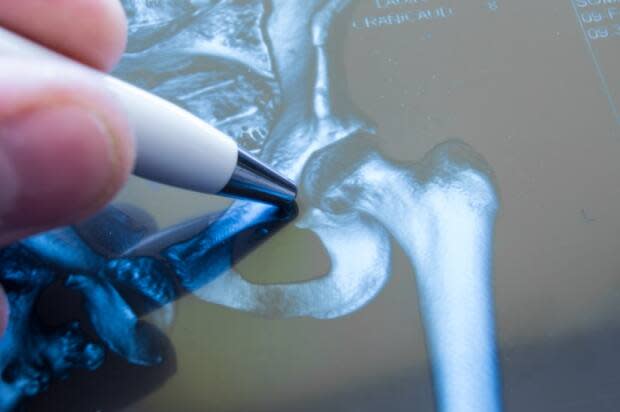Battle over chiropractors' ability to do routine X-rays headed for B.C. court

An internal struggle that's been building for years in the chiropractic profession has broken out into legal battle as a group of B.C. chiropractors heads to court, accusing their professional regulator of unfairly limiting their ability to do business.
At the heart of the fight is a policy change from the College of Chiropractors of B.C., which says chiropractors are no longer allowed to perform routine and repeat X-rays because of a lack of evidence supporting any benefit to patients.
The amendments, approved in February, state that radiography is only acceptable when a physical exam or patient history raises red flags that something is seriously wrong.
This change has prompted international outrage from some chiropractic groups, who argue that regular use of X-rays is safe and fundamental to their work. They've also warned that B.C.'s move marks the beginning of a worldwide effort to root out certain segments of the profession.
Earlier this month, Langley chiropractor Melody Jesson filed a petition in B.C. Supreme Court on behalf of at least a dozen chiropractors, calling for a judge to overrule the college and reject the policy change.
The March 10 petition alleges that as a result of the college's actions, Jesson and other chiropractors "are potentially prevented from providing safe, ethical, and effective care to their patients." It argues their "trade is unfairly and unduly restrained."
Jesson has also applied for an injunction barring the college from enacting its new rule while the case is being heard in court and preventing it from taking disciplinary action against her.
The college has yet to file a response to the petition, and registrar Michelle da Roza said she was unable to comment while the matter is before the courts.
Ongoing conflict over what chiropractic can treat
The court action is just the latest symptom of a larger conflict within the chiropractic profession across Canada.
On one side are chiropractors who advocate for what they describe as evidence-based practice targeting the musculoskeletal system.
On the other are the "vitalists," who argue that slight vertebral misalignments or subluxations are the root cause of an endless range of diseases, and that chiropractic treatment can help with everything from immunity to brain function.
In recent years, the B.C. college has enacted a number of rules that favour the evidence-based side of the argument, cracking down on chiropractors who make misleading claims and commissioning reviews of scientific research.
The college's decision to restrict the use of X-rays comes after a rapid review of the scientific literature on the topic. The team that conducted that research included Pierre Côté, Canada Research Chair in Disability Prevention and Rehabilitation at Ontario Tech University.

Côté said that some chiropractors may use X-rays once when they begin treatment of a new patient and then again when the treatment is complete. Others do it more often — and research suggests that chiropractors in the U.S. are increasing their use of the technology.
"What we found is there have actually never been studies that we are aware of that documented that patients benefit from these practices or techniques," Côté told CBC.
He said there are some risks as well associated with repeated exposure to radiation.
"The risks are believed to be small, but … the best way to minimize risk is not to be exposed to radiation," he said.
'Patients should be concerned'
There has been national and international opposition to those findings and the actions of the B.C. college.
Not long after the changes were announced, the New York-based International Federation of Chiropractors and Organizations, which advocates for "vitalists," began circulating a petition against the college. In a post on Facebook, IFCO president Grant Dennis said the federation was reaching out to like-minded chiropractors in B.C. to help fight the amendments.
"We believe that this is being used as a 'template' or 'proof of concept' to be initiated in other areas of Canada, and that it will eventually [make] its way into other parts of the world," Dennis wrote.
Jesson's petition has also attracted funding from the Canadian National Alliance for Chiropractic, a 17-month-old group that argues chiropractic care "enhances the body's ability to adapt and heal" and improves immunity. The organization says its board has donated "several thousand dollars" toward the legal effort.
In a press release announcing Jesson's court action, Burnaby chiropractor Cameron Allan argued chiropractors use X-rays because they are necessary for diagnosis.
"Patients should be concerned that their chiropractor may not have a full understanding of their spine, which in turn could possibly compromise their safety during treatment, as well as reduce timely and appropriate referral to medical colleagues for appropriate medical management," Allan said.
He and the other chiropractors involved in the legal effort argue that X-rays have been an essential tool of the trade for more than a century, and that the risks are minimal.
They've also described Côté's research as flawed, a criticism Côté rejected.
"I would invite those critics to actually provide evidence that would go against our conclusions, because we have not been able to find it," he said.

